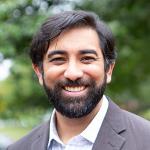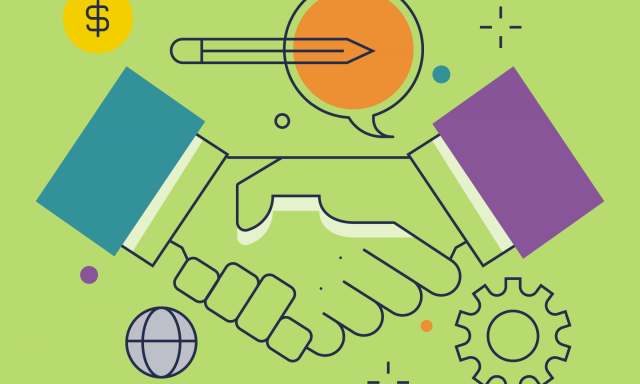
Why High-Class People Can Sometimes Get Away With Incompetence
One of the greatest tenets of U.S. national identity is the American Dream: the notion that freedom includes the feasible aspiration to more — to strive for and achieve success and prosperity regardless of background.
But just how socially mobile is the U.S. in reality?
Research suggests that in practice, advantage begets advantage. And in the U.S., the upper reaches of society remain largely inaccessible to those from humble origins, while the top jobs and wealthiest groups are disproportionately represented by people from highly educated and well-to-do families.
So what’s fostering all this social inequality?
Existing studies point to things like systemic prejudice, ignorance or rigidity within mainstream institutions, and a status quo bias among those in the most influential ranks.
But a new study by Darden Professor Peter Belmi and colleagues reveals that the attitudes people hold about themselves can also have an intriguing and important role to play.
A Question of Confidence
Building on research into how social class ties to people’s sense of self, Belmi wanted to explore two new hypotheses.
“We tested whether individuals from higher social classes were somehow more confident about their abilities than other social groups, beyond what reality can justify. And given that people tend to use confidence as a proxy for intelligence, we wondered whether this would spill over into high-class individuals’ social advantages.”
To test these ideas, Belmi and his colleagues put together a number of field experiments using diverse social groups in the U.S. and in Mexico. Participants were asked to undertake a range of general mental ability tests and then self-assess their performance.
Looking at the data generated, Belmi found a pattern.
“People from higher social class segments tended to think very highly of their abilities, beyond what reality can justify. Their perceptions of how good they are tended to exceed their actual performance.”
How Do We Judge Ability?
Belmi then conducted a study to see if these overconfident people were also being seen as more competent by others.
“In a mock job interview, we found that students from higher social class backgrounds were more overconfident compared with their lower-status counterparts. Independent observers tended to mistake that confidence as intelligence.”
The higher-class, overconfident students were seen as more competent and ultimately more hireable than their lower-status counterparts. However, there was no evidence that they had superior ability.
These findings shed light on why it’s important for organizations to assess competence properly.
“Class contexts appear to imbue advantaged individuals with an exaggerated belief that they are better than others. And our research shows that outsiders conflate this overconfidence as evidence of ability.”
The evidence, says Belmi, shows “a mechanism that perpetuates social hierarchies and inequality.”
And forward-thinking organizations would do well to address it.
Implications for Businesses
Failure to assess ability properly could lead to three negative outcomes for business organizations and institutions, Belmi warns:
- Perpetuating inequality and social hierarchy: Left unchallenged, gate-keepers and decision-makers are at risk of rewarding individuals who seem competent but may not really be the right people for positions of power. Conversely, underrepresented groups may be overlooked despite the fact that they bring huge value to organizations.
- Poor decision-making in position of influence: Overconfidence ties to impaired decision-making. Belmi cites a study by Darden Professor Sean Martin that finds that U.S. Army soldiers from wealthier backgrounds were systematically found to be less effective unit leaders compared to those come from more humble backgrounds. Belmi warns that the individuals that organizations systematically choose to elevate to positions of authority may not always necessarily be the same people who are capable of making the best decisions.
- Failure to leverage diversity and talent: Successful organizations, says Belmi, are those that actively foster inclusion, diversity and psychological safety, and in which multiplicity of talent, perspectives and approaches drives innovation, enhanced customer engagement and growth.
What Can Organizations Do?
Organizations looking to mitigate inequality should look for the kinds of structural mechanisms that assign status and influence to people with the right knowledge and skillsets.
Belmi’s recommendations include:
- Rethink the role of interviews, which have been shown to serve as poor predictors of job performance in the hiring and selection process. Instead, prioritize assessment methods that deliver accurate evaluations of people’s competencies. For example, organizations could use work sample tests; this entails giving applicants a sample piece of work, similar to that which they would do in the job, and assessing their performance at it.
- Create an effective system of checks and balances across professional development cycles. Build a culture of meritocracy in which promotions and advancement are linked to clear, objective metrics, based on technical competence and measurable skills.
- Don’t fall for the “extravert bias.” In the U.S., we often assume that those who talk a lot are the smartest employees in the room. That can’t be farther from the truth; sometimes, the most quiet people in the room have the most brilliant insights. During discussions, 80 percent of the airtime is dominated by 20 percent of the people in the room. Managers need to create the right environment so that everybody feels O.K. speaking up.
- Most importantly, if the aim is inclusion, we need to reward communal values. Too often the skills and values that organizations reward are those that reflect middle and upper class values — being assertive, being able to take charge, being able to speak up. In addition to assessing things like “Will this individual be effective at taking charge of others?” companies should also be thinking of ways to assess things like “How skilled is this individual at collaborating with others?” or “Is this employee effective at supporting others?” We can foster inclusion when the types of skills that “count” also include interdependent and communal values.
Peter Belmi was the lead author of “The Social Advantage of Miscalibrated Individuals: The Relationship Between Social Class and Overconfidence and Its Implications for Class-Based Inequality,” which appeared in the Journal of Personality and Social Psychology, with Margaret Neale of Stanford University and David Reiff and Rosemary Ulfe, both of LenddoEFL
















